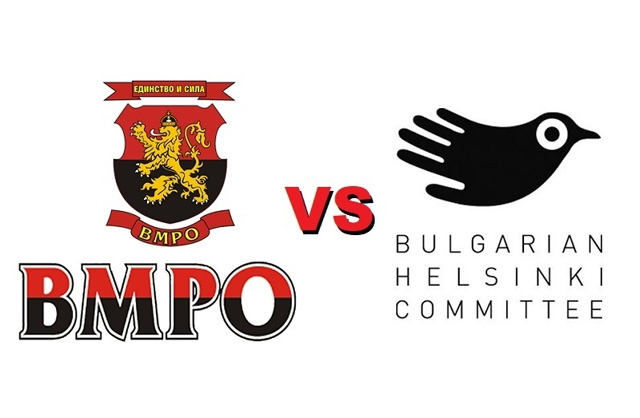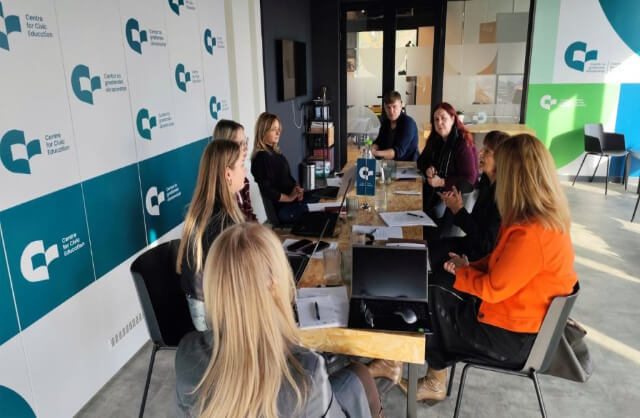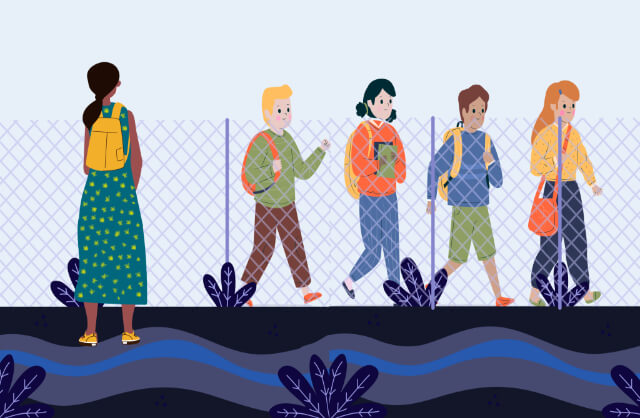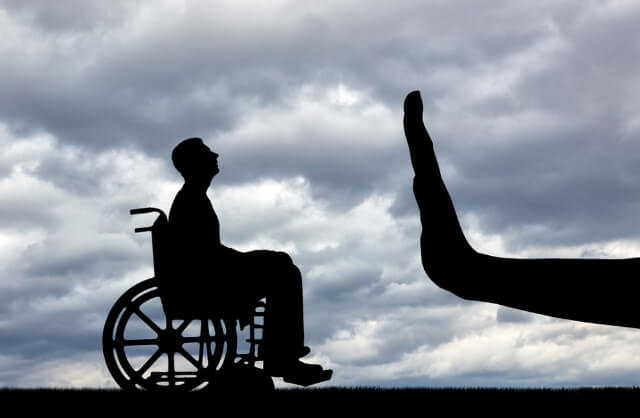Bulgaria’s far-right is attempting to shut down the country’s oldest human rights NGO
October 18, 2019

Pavlina Simonoska Arsikj
The Bulgarian far-right nationalist party VMRO-BND, a member of Prime Minister Boyko Borissov’s ruling coalition, requested the country’s chief prosecutor to cancel the registration of the Bulgarian Helsinki Committee (BHC), a leading local human rights NGO.
On a press release dated September 30, the party argues that the BHC is “interfering with the judiciary” by organizing seminars and other educational events with prosecutors and judges, as well as by representing clients in the European Court of Human Rights and domestic courts.
The press release adds that the BHC “has been engaging in anti-constitutional, illegal, immoral and openly anti-Bulgarian activities” and that the NGO’s work is “apparently in the defense of human rights, but has, in fact, repeatedly put at risk Bulgarian citizens, as well as the good name of Bulgaria before international institutions.’’
Another accusation listed by VMRO-BND is the role of BHC in the case of Jock Palfreeman, an Australian citizen who was sentenced to 20 years in prison for stabbing a Bulgarian citizen to death and injuring another in Sofia in 2007. The BHC has litigated in favor of Palfreeman, who maintains he acted in self-defense. He was granted parole in September 2019 after serving 11 years of his sentence, sparking street protests and a media outcry. VMRO says in the press release that the BHC “provides procedural protection for certain persons in cases presided over by the same magistrates it trains… through the seminars it seeks to exert pressure and influence in the resolution of cases of direct [national] interest.”
The request to dissolve the NGO was submitted by Angel Dzhambazki, deputy chairman of VMRO-BND and member of the European Parliament, and by Alexander Sidi, a Bulgarian MP with the same party.
A member of the European Union since 2007, Bulgaria took a turn to the far-right in 2017 when PM Borisov’s center-right party GERB allied itself with a small coalition of nationalist parties, including the VMRO-BND — the so-called “United Patriots.” They mostly espouse socially conservative values, with varying shades of Euroscepticism, anti-globalism, Islamophobia, and Russophilia, as well as a shared aversion for human rights.
Founded in 1992, the Bulgarian Helsinki Committee is the oldest human rights organization in Bulgaria and a member of the pan-European Civil Liberties Union for Europe. It offers legal help to the victims of human rights abuses free of charge and its annual reports provide a public record about the state of human rights in Bulgaria. It regularly supports projects of human rights education and also gives the Human of the Year Award to individuals and organizations that contribute to the promotion and advancement of human rights in the country.
The BHC responded to the accusations on a Facebook post in which they also remembered previous attempts by VMRO to undermine them.
This is not the first time that this extremist party of a manifestly neo-totalitarian type undertakes such action. In October 2017, they wrote to the Prosecutor General to initiate prosecution against the President of the Bulgarian Helsinki Committee, Krasimir Kanev for “sabotage”. In 2014, the same party wrote to the National Revenue Agency to initiate an investigation.
In a statement sent to Meta.mk, a news agency from North Macedonia and content partner of Global Voices, BHC President Krasimir Kanev said:
These are purely Stalinist methods. It is terrible to see that for 30 years after the democratic changes in Bulgaria, an attempt has been made to impose such Stalinist methods, to interfere with state institutions and to try to pressure civil society.
More than 80 Bulgarian and 40 foreign and international NGOs, through a coalition called Civic Solidarity Platform, expressed their support for the BHC and called for the Bulgarian government to distance itself from the threats. Their statement says:
The developments are of particular concern in a country where intolerance is on the rise, and where the safety of those who work for the protection of minorities and the most vulnerable groups of the population can no longer be taken for granted. There is currently no human rights organization in Europe that has been banned. Despite repressive measures in a number of front-line democracies in Europe, no European country has so far allowed itself to ban citizen organizations. Bulgaria should not set a dangerous precedent.

In December 2018, unknown perpetrators vandalized the bulding that houses the Bulgarian Helsinki Committee with insulting graffiti calling them “freaks, fascists, garbage, slime.” They responded with this photo, published on their Facebook page with a caption “Hate is easy, love takes courage.”
Amnesty International’s deputy director for Europe, Massimo Moratti also signed a statement:
This is an unprecedented attempt to silence independent and critical voices by the authorities in Bulgaria. As a member of the European Union, Bulgaria has a responsibility to uphold the rule of law, and we expect the Prosecutor General to firmly reject the request for dissolution. The Bulgarian Helsinki Committee is the most respected human rights organisation in Bulgaria. Their work providing capacity-building for judges and prosecutors and legal services to people in need is crucial. Attempts to deregister them for their work are a direct assault on freedom of expression.
In 2016, the UN Human Rights Office expressed concern after two men physically attacked Kanev on a Sofia street.
Bulgarian human rights researcher Iveta Cherneva wrote for EuroNews that she doesn’t “want to see the country follow the example of Hungary, where human rights NGOs and universities are pushed so hard by the authorities that they have to close and move. That is not the right path to follow.” She adds that the closing down of the BHC “would be a blow to Bulgarian leadership and its human rights record. This will be not only a test for the Prosecutor’s office but for all Bulgarians and the EU.”
Pavlina Simonoska Arsikj is Communications Coordinator with the Helsinki Committee for Human Rights of the Republic of Macedonia, a human rights advocacy NGO with similar values to, but no direct affiliation with, the Bulgarian Helsinki Committee.


